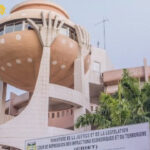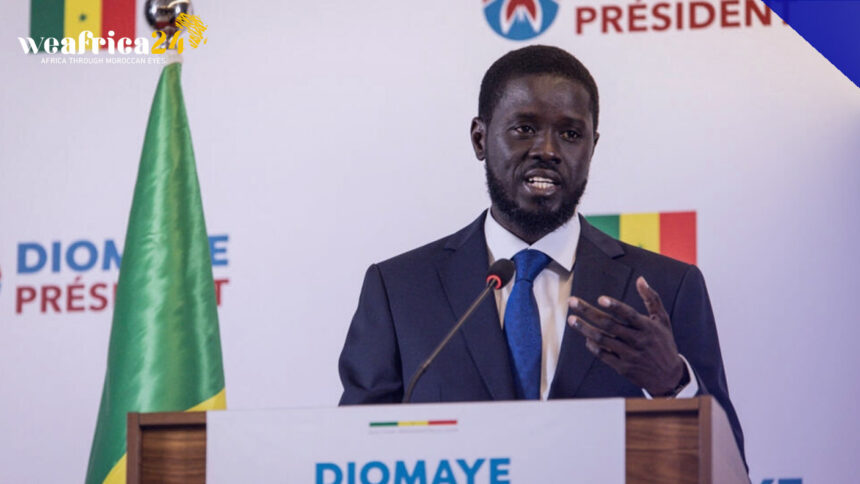Elected by the Senegalese people in a surprising turn of events on the evening of March 24th, Bassirou Diomaye Faye, the anti-system and Pan-African candidate, has replaced opposition figure Ousmane Sonko, who was sidelined from the presidential race.
Dressed in a blue suit, newly-elected President Bassirou Diomaye Faye addressed the nation solemnly on the day following the presidential election of March 24. “By electing me as President of the Republic, the Senegalese people have chosen change… I pledge to govern with humility and transparency, to combat corruption at all levels,” declared the anti-system candidate, shortly after a phone call with his main rival and outgoing incumbent candidate, Amadou Ba, who conceded defeat.
Just ten days after being released from eleven months of imprisonment, 44-year-old Bassirou Diomaye Faye, previously unknown to the public, finds himself on the brink of power. As the Plan B candidate for the Patriotic African Party of Senegal for Work, Ethics, and Brotherhood (Pastef), which was dissolved by Senegalese authorities in July, this tax inspector was chosen to replace Ousmane Sonko, the charismatic leader who was prevented from running in the presidential election due to legal reasons. No one could have predicted that this discreet right-hand man would ascend to the highest echelons of state power.
A Co-founder of Pastef with Ousmane Sonko
Hailing from the village of Ndiaganiao, about a hundred kilometers from Dakar in the Mbour department, Bassirou Diomaye Faye grew up in rural surroundings. A graduate in law from Cheikh Anta Diop University in Dakar, he was admitted to the National School of Administration.
It was at the Directorate General of Taxes and Domains (DGID) that he met Ousmane Sonko, Birame Souleye Diop, and Wally Diouf Bodiang, with whom he co-founded Pastef in 2014. As head of the administrative and tax litigation bureau, he is known for his rigor and dedication to work. “You need to have a good technical level in law and taxation to handle this bureau, as it involves dealing with taxpayers’ administrative appeals,” affirms Waly Diouf Bodiang, deputy director of legislation at the DGID and member of Ousmane Sonko’s cabinet.
Together, they became politicized within the Autonomous Union of Tax and Domain Agents (SAID), founded by Ousmane Sonko a few years earlier. Bassirou Diomaye Faye served as its secretary-general until 2022, after having worked in legal affairs. “He worked extensively on land issues to ensure that DGID agents had access to land and that land was distributed more transparently,” recalls Mr. Bodiang.
Simultaneously, these young tax inspectors founded Pastef. Bassirou Diomaye Faye increasingly became indispensable, eventually being appointed head of the movement for executives and the diaspora. In 2019, he was the architect of the Jotna program, spearheaded by Ousmane Sonko during the presidential election, which placed him third behind Macky Sall and Idrissa Seck with nearly 16% of the votes.
Two years later, in March 2021, the leader of the party, Ousmane Sonko, was arrested for “disturbing public order” as he headed to court accompanied by a crowd of supporters after being accused of rape by a young employee of a massage parlor. While the government was accused of seeking to eliminate the opposition, his arrest for several days sparked violent protests that resulted in fourteen deaths, according to Amnesty International.
Deprived of its leader, the former Pastef turned to Bassirou Diomaye Faye, the faithful right-hand man, who was thrust into the limelight. Shortly thereafter, the party was restructured, and Bassirou Diomaye Faye was promoted to secretary-general of the former Pastef. “He is calm, listens to his colleagues, and knows when to make decisive decisions,” testifies MP Ayib Daffé, who served as interim secretary-general of the former Pastef during his imprisonment.







